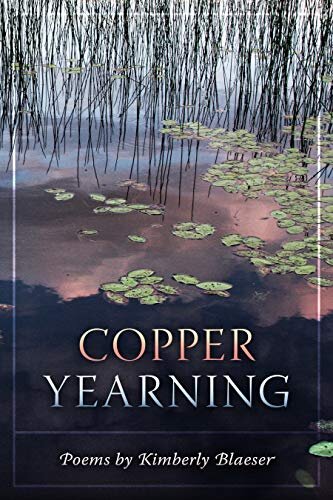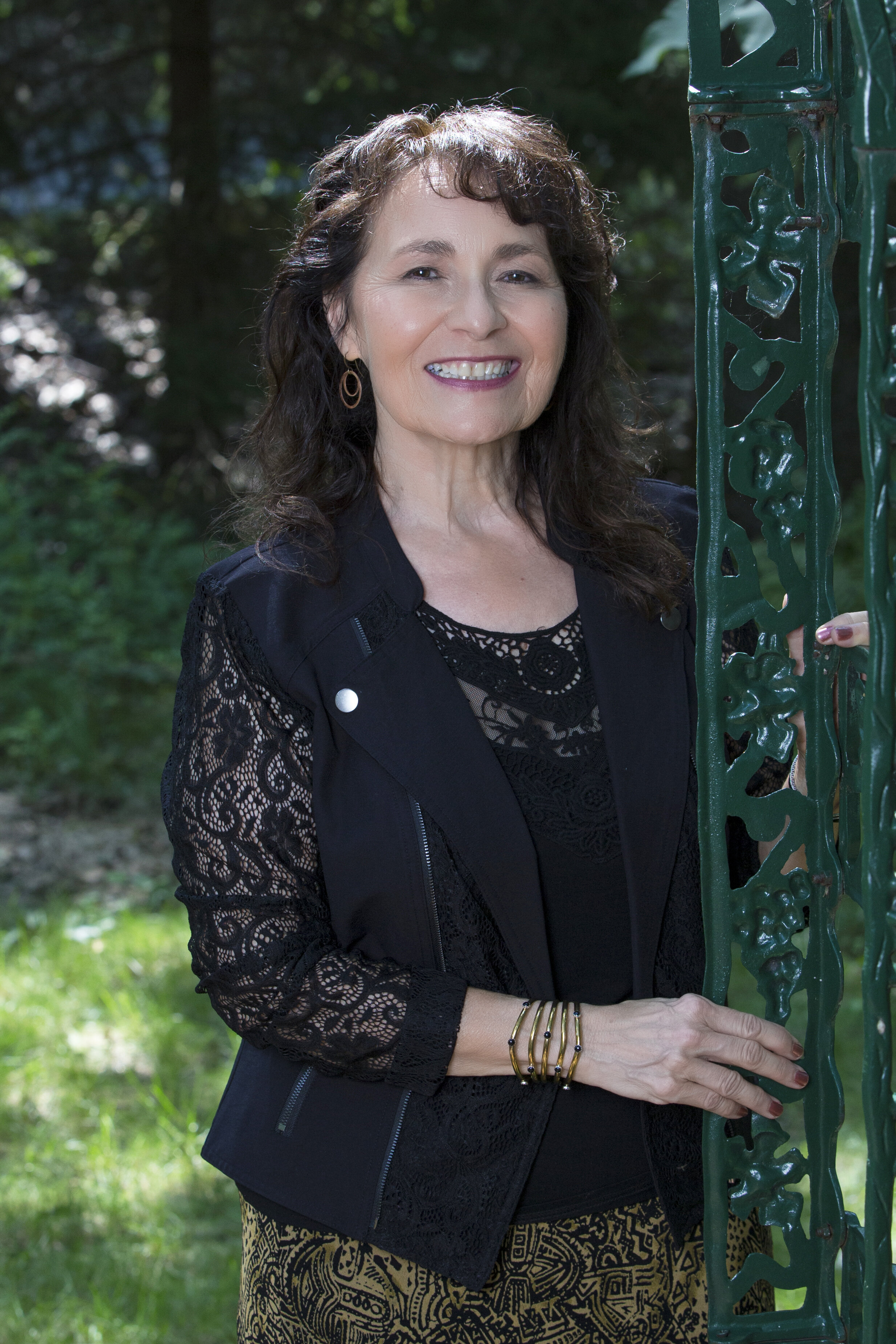by Charlotte Gutzmer
In a world fraught with conflict and injustice, Angela Trudell Vasquez grips her pen tightly, writing poems of healing, identity, and love. These magically captivating poems do more than simply warm the heart; they bring people together, fostering a prosperous community like no other.
Angela Trudell Vasquez is a Mexican-American writer and holds an MFA in poetry from the Institute of American Indian Arts. Finishing Line Press published her third collection of poetry, In Light, Always Light, in 2019, and recently accepted her fourth collection, My People Redux, for publication. Her poems have appeared in the Yellow Medicine Review, The Slow Down, the Raven Chronicles, The Rumpus, on the Poetry Foundation’s website, and elsewhere. She is the current poet laureate of Madison, Wisconsin and the first Latina to hold the position. She recently co-edited a poetry anthology entitled Through This Door—Wisconsin in Poems, with current Wisconsin Poet Laureate, Margaret Rozga, and released it through her small press, Art Night Books, in November 2020. With poet Millissa Kingbird, she co-edited the Spring 2019 issue of the journal the Yellow Medicine Review. On July 29th, join her in her CVWG craft talk: “Poetry for the People Workshop”.
I had the pleasure of speaking with Angela about her poetry, her experience as the first Latina poet laureate, and about her upcoming craft talk; read on to learn all about incorporating themes of social justice and love into your writing, about writing poems of witness and share, and more!
Charlotte Gutzmer: The About Place Journal describes your poetry as a medium for “highlighting love and social justice”. How can one incorporate these themes into poetry, and how does the process of writing and publishing these poems affect writers and readers?
Angela Trudell Vasquez: Wow, that's really nice of them. I write what I feel and have been an activist from a young age marching with my parents for farmworkers' rights with Cesar Chavez during the lettuce boycott as a child. We lived in Iowa City at the time, my Dad went to the University of Iowa on the GI Bill and we lived in family student housing with people from all over the world. The smell of curry floated into our open windows. My best friend was from Australia. My parents were founding members of the Chicano House and we spent lots of time there. I think I was born a feminist actually. Social Justice has long been a part of my life. We were a Mexican American family living in Iowa, a suburb of Des Moines, we had politics for breakfast as a family and discussed history and politics, not just partisan, we went deeper. I understood class, socio economics from an early age having a super big family with different levels of education and income. Personally, people need to write about what they are moved to write. What are your deep concerns? Your words? Poetry must come from a deep well of truths, your truths. Everyone has their own story to tell and people are endlessly fascinating to me. Poetry can close the gap between people, foster greater understanding, connection and healing. Poets can not be false. There are two things I will mention when I present in June, poetry of witness and documentary poetics. I come from a long line of literary ancestors who helped shape me into the poet I am today. The more we share our poems the more we learn from each other and the greater human experience for all.
CG: In addition to your own writing, you also have experience editing with the literary journals Yellow Medicine Review and About Place Journal. How have your experiences in publishing influenced your perspective of the world around you?
ATV: I have also edited a few more collections including two zines from my time in Milwaukee, and one most recently with the former Wisconsin Poet Laureate, Margaret Rozga, in November 2020 entitled, Through This Door. I also have my own press with my husband, Art Night Books. I find publishing others to be a joy! It does take work. I have learned that when curating a collection it is important to let all the pieces come in before I start reviewing them, so that the pieces can be in conversation with one another. You put a call out to the universe and you get what is floating in the ether. You get exactly what you need. I have also discovered I love having a co-editor like Millissa Kingbird with the Yellow Medicine Review, and Peggy Rozga with Through This Door which along with the other titles came out of Art Night Books. I love talking art and poetry with co-editors and shaping something into being. I enjoy editing my own work and developing good editorial skills in my MFA program. I will say there are so many good writers out there doing their thing without lots of fanfare and it is nice to publish them alongside more well-known writers. I guess I have learned we do not do anything on our own but with the help of others, and I do want to encourage others to write and express themselves.
CG: In 2020, you were named Madison’s Poet Laureate, and you are the first Latina to hold the role! Could you reflect on your experiences so far in this position?
ATV: Yes! I am the first Latina in this role and I do not take that lightly. I have had a great time. Later today I will proof the final images for the Bus Lines Poetry Project. I consider myself a literary ambassador, a poet for the people, and I want to connect, only connect in this role and sometimes that means reading my own poems and other times it means expanding people's ideas of poetry by introducing them to someone else's work. The city of Madison has been very welcoming. I love working with Karin Wolf who is my main contact at the city. I love bringing other poets and their poems to read poems at the City Council meetings. I have lost track of how many poetry contests I have judged and how many virtual readings I have done at this point. I do know how many I have done in person. I look forward to being more in the community and working with more young people. Poetry is having its day right now! In addition to what I do locally, I am active on the national and regional scene. Being the Madison Poet Laureate is my dream come true! I have been writing since the age of 7, and really it has been unbelievable for me. I feel most fortunate.
CG: Your craft talk will feature an exercise where participants “write their own poems of witness and share.” Could you speak on the importance of writing these types of poems?
ATV: Yes, absolutely. I am among other things a poet of place, space and time. I learned the term "Poetry of Witness" from the amazing poet who I adore Carolyn Forche, and I credit her book, The Country Between Us, as shaping me as a young poet in my twenties. Her work was also part of my thesis, this book, among many of her others. I like to write contemporary poems about the people around me, the times we are in and what I observe and see in the world. I can write a poem about anything; but sometimes I choose to write from the point of view of the witness, and/or create or sculpt on the page what I see, observe and suss out from the world around me. I write when traveling and before the pandemic that meant poems from travels in the US and outside. It can be a serious topic or it can be something else too. Like my poems from Isla Mujeres. Or poems from this past weekend, poems from my first niece's wedding, the first to call me, name me "Titi." There were so many beautiful moments I have been writing them down, glimmers, and there is also this absence of those we miss like the young groom's father and his grandmother. With fierce love comes this sadness, coupled with coming together after the pandemic. We have to keep laughing or we will be crying moments, what people said, how they danced with the photographer, the moment we lost track of the rings, the way the young people looked, the bridal party walking down the aisle magnificent and pure in their love for the couple getting married. Meanwhile somewhere else there are people being bombed, losing what we all hold precious, our lives, our beloveds, our lives. This is all true. We, the people come and go but "Art Speaks" across the ages. You can time travel in poems. I have touched on this before in many other poems...
CG: In your upcoming craft talk, you will be sharing your poetic influences, including Carolyn Forché, Joy Harjo, Simon Ortiz, Eduardo Galeano, Allison Adelle Hedge Coke, Arthur Sze, among others. What can we learn from studying the work of other authors, and what is one poetic technique that you have picked up from these writers?
ATV: This is going to be so exciting for me! There is much to learn from other poets and to enjoy. Think about how much you enjoy standing in front of a piece of art at the Art Institute of Chicago or at the Chazen in Madison, or the Art Museum in Milwaukee, just writing down the names sparks my brain thinking of all the art I have seen and admired being alive. Good art inspires more art I find. There are poems I can never get enough of in this world and poems I am just stumbling on. I have almost passed out at a reading of a colleague or mentor at IAIA. Reading, listening to writing, these are wonderful gifts of humanity. If you want to be an artist/writer I think it is important to study others and not limit it to literary arts by any means. Arthur Sze's notion of every line being a poem is something I greatly admire!
CG: In the description for your upcoming craft talk, you also state that “poets and poems are central to the global movement towards peace and justice”. How can poetry be used as a force for positive societal change?
ATV: Point of view, empathy, someone else's story, one they have shared with you can be very effective as a tool for creating a more just and peaceful world. The more we know about each other the less we can dehumanize each other, or allow others to do it to large groups of people. Story telling, sharing of words and stories, and poems can only help the equation. Poems are meant to be heard and are rooted in an oral tradition which by definition creates community. Art has traditionally been used for many different causes; it can certainly work for today's concerns as well. I think about how music, songs from the civil rights movement are just as poignant and relative today as they were when they initially played on the radio. I think of Picasso's Guernica and what it felt like to stand under it and witness what he depicted on the canvas for everyone to see and remember.
So what are you waiting for? Register today for Angela Trudell Vasquez’s craft talk to learn how you, too, can take the next steps towards writing poetry that can help bring people together instead of tearing them apart.












